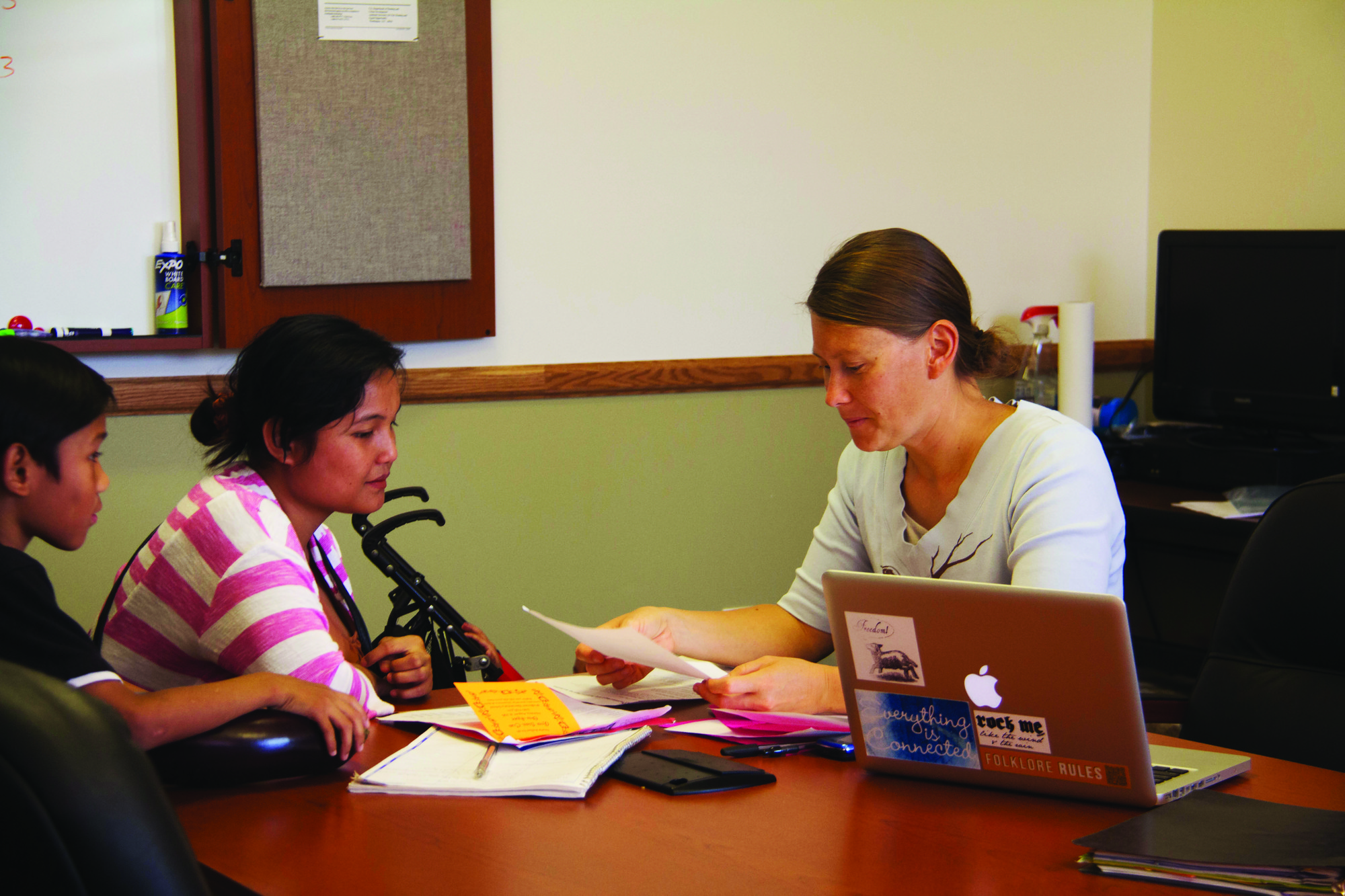New Logan organization seeks to help refugees in Cache Valley
This year marks the official founding of the Cache Refugee and Immigrant Connection, or CRIC, a non-profit organization dedicated to helping refugees in Cache Valley.
“We were official just this past March,” Nelda Ault, one of the organization’s founders, said.
Though CRIC’s official birth date is recent, it fills a need that has been present in Cache Valley for years. Ault began working with refugees as a case worker through the Department of Workforce Services in Logan. She helped refugee families settle in, get their children into school and cope with the everyday difficulties of adjusting to an entirely new culture.
When Ault found out that her position as a case worker was being moved to Salt Lake City, she knew the community in Logan still needed her.
“When I knew that my funding was being diverted, we looked all around to see if there was another organization that could absorb the services I had been providing,” Ault said, “and when we realized there wasn’t, we started a non-profit, and that was CRIC.”
CRIC serves a community of refugees who have come to Cache Valley from across the world.
“Most of the refugees here in Logan are from Burma, and they are the Karen ethnic group,” Lorien Belton, a board member at CRIC explained. “Most of them came from refugee camps in Thailand, where they lived for many years before being able to come to the United States.”
Belton said there are also refugees from Ethiopia, Eritrea, Sudan, Somalia and Iran living in Logan, usually because of job opportunities they heard about from family or friends. Many work at the meat packaging plant in Hyrum.
After a long journey, about 300 refugees have settled in Logan, according to CRIC estimates. There is no requirement that refugees register themselves, so CRIC only meets those who benefit from its services, usually families. Single working men, Ault noted, don’t need the same help that families do, so it’s possible that there are many refugees in Cache Valley with whom the organization has never interacted.
As a relatively new non-profit, CRIC has relied heavily on volunteer work and donations. There are still many opportunities for members of the Cache Valley community to get involved.
“We could always use monetary donations,” Ault said with a laugh. She added that volunteer work is always needed and appreciated. “We run something called walk-in hours four days a week. People bring their mail and their job applications, or their school paperwork for their kids.”
Volunteers are always needed for walk-in hours, but there are many other ways to help. “Folks who want to be involved are welcome to come by a CRIC meeting,” Belton explained. “There’s a community garden where you can just meet people and help pull weeds, too. Or you can donate to CRIC — currently everyone involved is a volunteer and donations will help the organization grow and be able to help more refugees in more ways.”
CRIC’s website is www.cacherefugees.org, which features more information about CRIC’s mission, an application for volunteers and an easy way to donate. The next CRIC meeting is at 5:30 p.m. on Oct. 22, at St. John’s Episcopal Church.
After listing these many opportunities to get involved, Belton explained how community members can help.
“I personally think that the best thing anyone can do is to make sure to smile at people you see who look like maybe they could be a refugee,” Belton said. “Just think how meaningful it would be if you went to a strange place where you didn’t speak the language, and everyone ignored you, or looked at you like you didn’t belong and then someone finally looked you in the eye and just smiled. There are plenty of times you’ll just be smiling at a random university student who is not a refugee, but that’s just fine. Everyone needs smiles.”
— katherinetaylor@aggiemail.usu.edu
Journalism student Katherine Taylor writes at https://katherinedtaylor.wordpress.com/. This article was provided by Hard News Café

